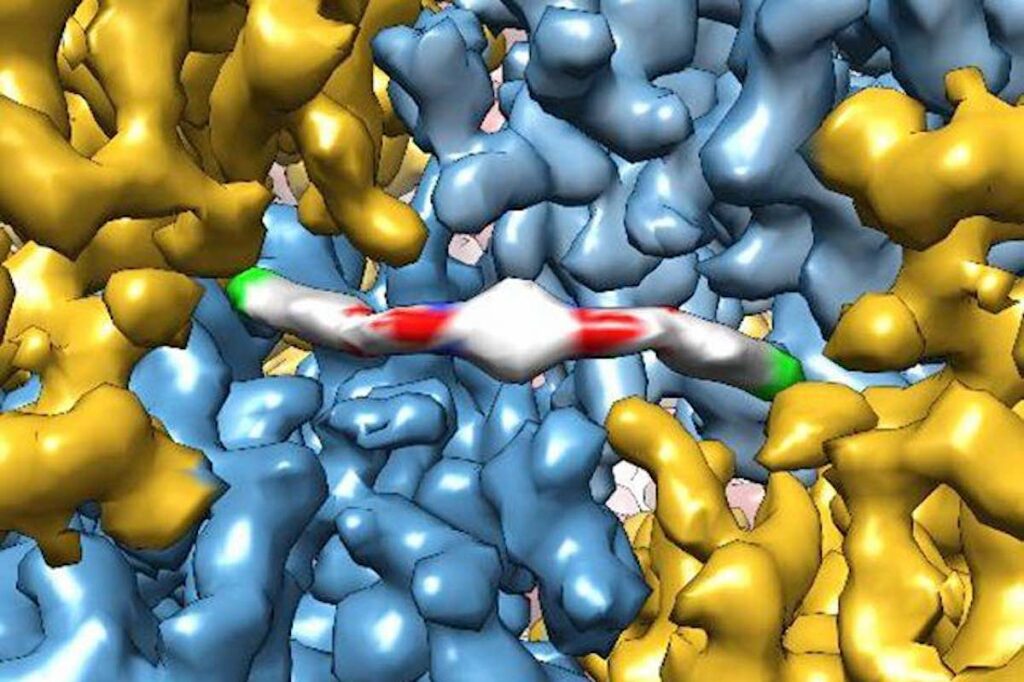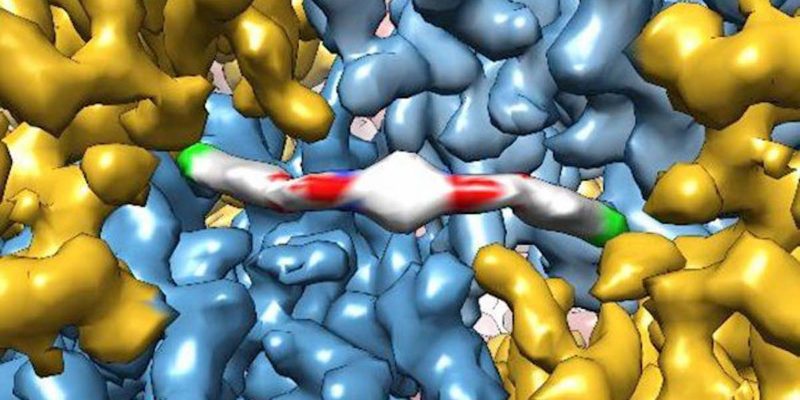Drug Reverses Age-Related Mental Decline Within Days, Suggesting Lost Cognitive Ability is Not Permanent
Just a few doses of an experimental drug that reboots protein production in cells can reverse age-related decline in memory and mental flexibility in mice, according to a new study by UC San Francisco scientists.
The drug, called ISRIB, has already been shown in laboratory studies to restore memory function months after a traumatic brain injury (TBI), reverse cognitive impairments in Down syndrome, prevent noise-related hearing loss, it fights certain types of prostate cancer and even improves cognition in healthy animals.
In the new study, published December 1 in the open access version daily eLife, the researchers showed a rapid restoration of juvenile cognitive abilities in elderly mice, accompanied by a rejuvenation of brain cells and the immune system that could help explain the improvements in brain function, and with no observed side effects.
“The extremely rapid effects of ISRIB show for the first time that a significant component of age-related cognitive losses may be caused by a kind of reversible physiological ‘block’ rather than more permanent degradation,” said Susanna Rosi, PhD, Lewis and Ruth Cozen Chair II and professor in the departments of Neurological Surgery and of Physical Therapy and Rehabilitation Sciences.
“The data suggests that the aging brain has not permanently lost essential cognitive abilities, as was commonly assumed, but that these cognitive resources are still there, but somehow they have been blocked, trapped by a vicious cycle of cellular stress,” he added Peter Walter. PhD, professor in the UCSF Department of Biochemistry and Biophysics and investigator at the Howard Hughes Medical Institute. “Our work with ISRIB demonstrates a way to break that cycle and restore cognitive abilities that had become isolated over time.”
Restarting cellular protein production is key to aging
Walter has won numerous scientific awards, including the Breakthrough, Lasker, and Shaw Awards, for his decades-long studies of cellular stress responses. ISRIB, discovered in 2013 in Walter’s lab, works by restarting cells’ protein-making machinery after it is throttled by one of these stress responses: a cellular quality control mechanism called the Integrated Stress Response (ISR; ISRIB stands for ISR InhiBitor).
RELATED: Breakthrough for spinal cord injuries and dementia as protein spawns ‘surprising’ repairs
ISR normally detects problems with protein production in a cell – a potential sign of viral infection or cancer-promoting gene mutations – and responds by slowing down the cell’s protein synthesis machinery. This safety mechanism is essential for eliminating misbehaving cells, but if it gets stuck in the ‘on’ position in tissue such as the brain, it can cause serious problems as cells lose the ability to carry out their activities. normal, according to Walter and his colleagues. .

In particular, his recent studies in animals have implicated chronic activation of ISR in the persistent cognitive and behavioral deficits seen in patients after TBI, showing that, in mice, brief treatment with ISRIB can restart ISR and restore normal brain function almost overnight.
Cognitive deficits in TBI patients are often compared to premature aging, leading Rosi and Walter to wonder if ISR could also be the basis for purely age-related cognitive decline. It is well known that aging compromises the production of cellular proteins throughout the body, as life’s many insults accumulate and stressors such as chronic inflammation wear out cells, which can lead to widespread activation of the ISR.
“We have seen how ISRIB restores cognition in animals with traumatic brain injury, which in many ways is like an accelerated version of age-related cognitive decline,” said Rosi, director of neurocognitive research at UCSF Brain and Spinal Injury Center and a member of the UCSF Weill Institute for Neurosciences. “It may sound like a far-fetched idea, but asking if the drug could reverse the symptoms of aging itself was the logical next step.”
The characteristic effects of aging literally disappeared overnight
In the new study, researchers led by lab postdoc Rosi Karen Krukowski, PhD, trained old animals to escape a water maze by finding a hidden platform, a task that is normally difficult for older animals to learn. But animals that received small daily doses of ISRIB during the three-day training process were able to perform the task as well as young mice, and much better than animals of the same age that did not receive the drug.
The researchers then tested how long this cognitive rejuvenation lasted and whether it could be generalized to other cognitive abilities. Several weeks after the initial ISRIB treatment, they trained the same mice to find their way out of a maze whose exit changed daily, a mental flexibility test for old mice that, like humans, tend to get more and more stuck in their tracks. roads. Mice that had received a short ISRIB treatment three weeks earlier were still performing at youthful levels, while untreated mice continued to fight.
To understand how ISRIB might be improving brain function, the researchers studied the activity and anatomy of cells in the hippocampus, a brain region with a key role in learning and memory, just one day after giving them to the animals. a single dose of ISRIB. They found that the common signatures of neuronal aging literally disappeared overnight: the electrical activity of neurons became more lively and responsive to stimulation, and cells showed more robust connectivity to surrounding cells, all the while that showed the ability to form stable connections with each other, generally only seen in younger mice.
PLUS: In ‘world first’, scientists reverse brain damage in drowned child
Researchers continue to study exactly how ISR disrupts cognition in aging and other conditions and to understand how long the cognitive benefits of ISRIB may last. Among other puzzles posed by the new findings is the discovery that ISRIB also disrupts the function of immune system T cells, which are also prone to age-related dysfunction. The findings suggest another way in which the drug could improve cognition in elderly animals and could have implications for diseases from Alzheimer’s to diabetes that have been linked to increased inflammation caused by an aging immune system.
“This was very exciting for me because we know that aging has a profound and persistent effect on T cells and that these changes can affect brain function in the hippocampus,” Rosi said. “At the moment, this is just an interesting observation, but it gives us a very exciting set of biological puzzles to solve.”
Success shows the ‘chance’ of basic research
Rosi and Walter were introduced by neuroscientist Regis Kelly, PhD, executive director of the QB3 center for biotechnology innovation at the University of California, following Walter’s 2013 study that showed the drug appeared to instantly improve cognitive abilities in healthy mice. For Rosi, the results of that study implied an isolated cognitive potential in the brain that the molecule was somehow unlocking, and she wondered if this additional cognitive boost could benefit patients with neurological damage from traumatic brain injury.
CHECK OUT: Blueberries May Fight Alzheimer’s – It’s All About Anthocyanins
Labs joined forces to study the issue in mice and were astonished by what they found. ISRIB not only compensated for some of the cognitive deficits in traumatic brain injury mice, it erased them. “This has never been seen before,” Rosi said. “The mantra in the field was that brain damage is permanent, irreversible. How could a single treatment with a small molecule make them disappear overnight? “
Other studies have shown that neurons in the brain of animals with traumatic brain injury are completely blocked by ISR. Using ISRIB to release those brakes allows brain cells to immediately return to normal activity. More recently, studies in animals with very mild repetitive brain injuries, similar to professional athletes who experience many mild concussions over many years, showed that ISRIB could reverse increased risk behavior associated with damage to self-control circuits in the frontal cortex .
“It’s not often that you find a drug candidate that shows so much potential and promise,” says Walter, calling it “just amazing.”
No side effects
One might think that interfering with ISR, a critical cellular safety mechanism, would surely have serious side effects, but so far in all of their studies, the researchers have not observed any. This is likely due to two factors. First, only a few doses of ISRIB are needed to restore unhealthy, chronic ISR activation to a healthier state. Second, ISRIB has virtually no effect when applied to cells that are actively employing ISR in its most powerful form, against an aggressive viral infection, for example.
RELATED: New study says infrared lasers destroy harmful plaques in the brain from Alzheimer’s disease
ISRIB has been licensed by Calico, a South San Francisco, California company exploring the biology of aging, and many other drug companies have embraced the idea of targeting ISR to treat disease, Walter says.
“It almost seems too good to be true, but with ISRIB it seems that we have reached an optimal point to manipulate the ISR with an ideal therapeutic window,” said Walter.
Get more links to background studies from the original article by UCSF News.
SHARE this exciting research on aging on social media …








